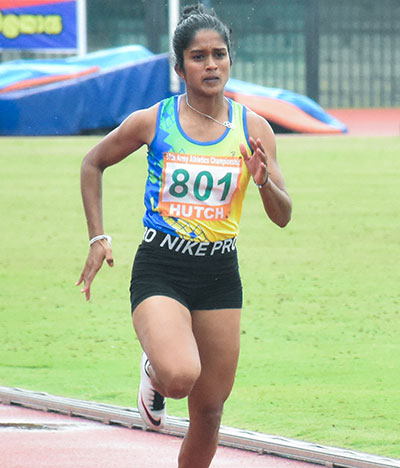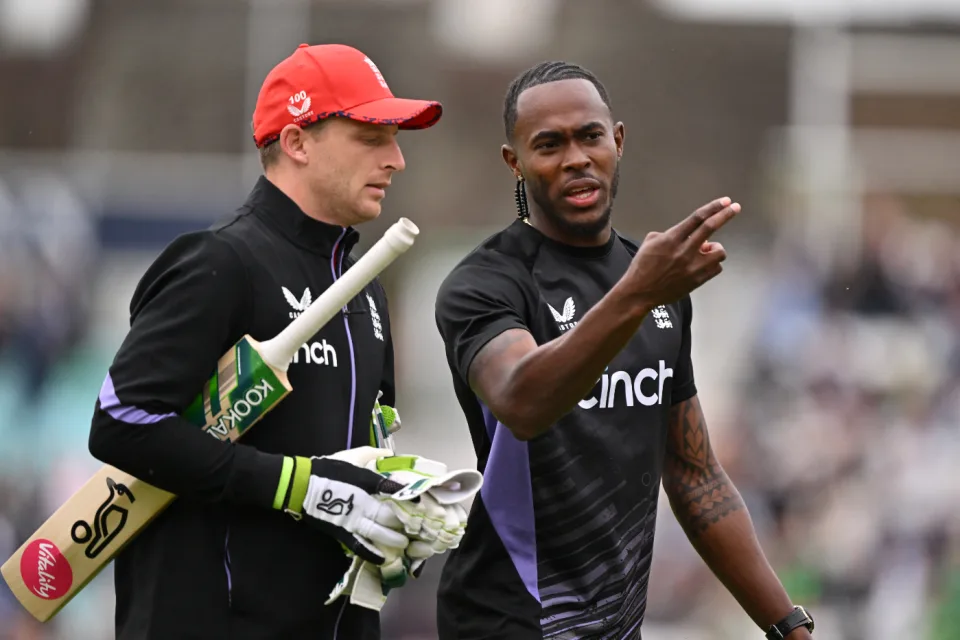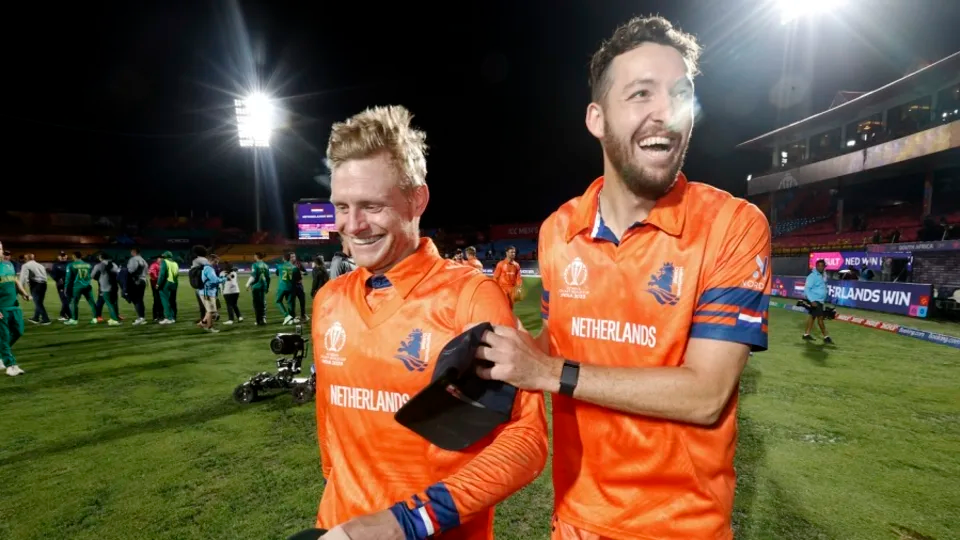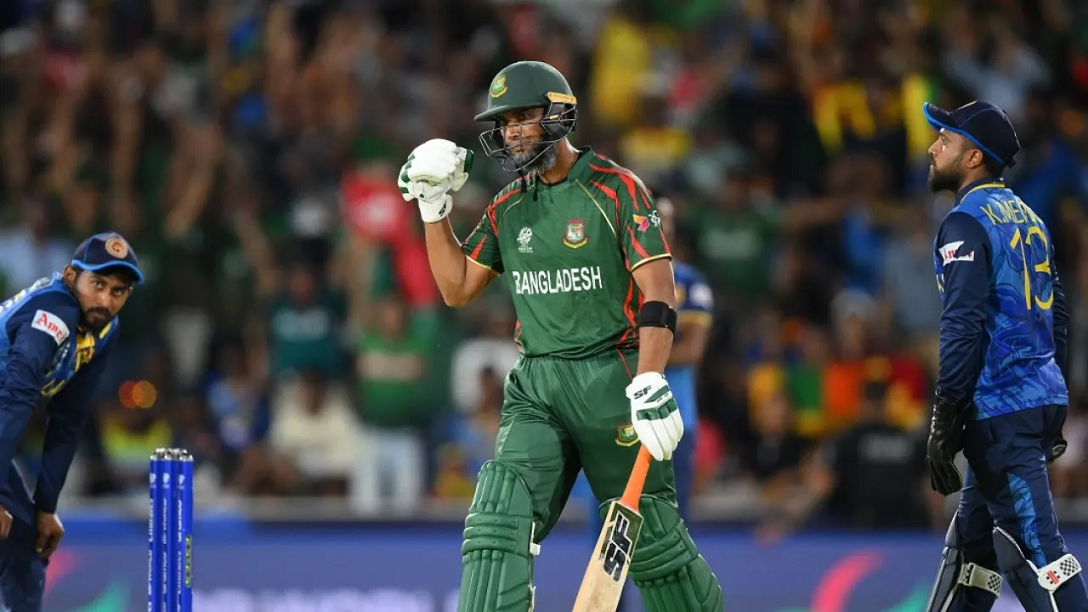Sports
Amasha smashes Susanthika’s Army record, Roshan dazzles with hurdles feat

57th Army Athletics Championships
by Reemus Fernando
Sprinter Amasha de Silva smashed Olympian Susanthika Jayasinghe’s longstanding Army Athletics Championship 100 metres record and Roshan Dhammika Ranatunga came almost close to breaking his national record in the 110 metres hurdles as they blazed the track on the final day of the Army Athletics Championships at the Sugathadasa Stadium on Friday.
Amasha clocked 11.67 seconds to win the women’s 100 metres final ahead of Susanthika’s niece Medhani Jayamanne in the afternoon. She broke Susanthika’s 1994 hand-timed record of 11.6 seconds. With yesterday’s feat, Amasha has now taken both the 100 and 200 metres records of the Army Championships under her belt. The athlete trained by Sanjeewa Weerakkody has a personal best of 10.55 seconds from 2020 and is the fourth fastest athlete in history in the 100 metres behind Susanthika, Damayanthi Dharsha and Rumeshika Ratnayake.
In the morning, Roshan Dhammika produced the second-fastest legal time ever run by a Sri Lankan in the men’s 110 metres hurdles.
Dhammika, who broke Olympian Mahesh Perera’s 24-year-old 110 metres hurdles record at the National Championships four weeks ago, clocked 13.91 seconds to win the gold in the 110 metres hurdles final. The SLEME athlete’s effort had a minus 1.9 wind reading as he finished the event just two milliseconds slower than his national record.
His coach Thiron Gamage was confident that Dhammika would improve his national record once again and he almost achieved the target running against the wind. “He missed the record but with this feat, Dhammika has proved beyond doubt that his national record was not a fluke,” Gamage told The Island after the new meet record performance.
How much he has got to offer was evident from the time Dhammika ran a relaxed heat in the morning. Despite breaking the second hurdle he was still leading when he cleared the last hurdle but slowed down to finish third in the heat. In the final his only blemish was breaking the last hurdle. Still, he was metres ahead of the rest. With his third sub 14 seconds run (13.97 secs and 13.89 secs at the Nationals) the former Kularatne Central, Godakawela athlete has become the only Sri Lankan to run the distance under that mark legally.
All three athletes who had previously run the distance under 14 seconds, namely Chaminda Fonseka, Supun Viraj Randeniya and Mahesh Perera had wind readings above the legal limit.
Those were not the only impressive track performances as Pabasara Niku produced his personal best with a 46.36 seconds to finish first in the men’s 400 metres final which was minus national champion Kalinga Kumarage and the other leading contender Aruna Dharshana. Dharshana pulled out from the competition due to injury in the semi-finals on Thursday. Harsha Karunaratne who won the 800 metres, finished second behind Niku in a time of 46.83 seconds. In the corresponding women’s event, Nadeesha Ramanayake bagged the gold medal. She clocked 54.54 seconds.
There were two other individual meet record performances from Sarangi Silva in the women’s long jump and Samith Fernando in the men’s shot put.
Sarangi cleared a distance of 6.14 metres to win the long jump. Fernando cleared 16.60 metres to create his record.
Nilani Ratnayake, whose steeplechase feat was adjudged the most outstanding performance in the female category won her third individual gold medal when she clocked 4:25.20 seconds to finish the 1,500 metres. While Samantha Pushpakumara (RMS) won the men’s 10,000 metres in a time of 31:12.28 seconds, H.A.M. Dilrukshi was the winner in the women’s discus throw. Men’s 100 metres winner Himasha Eshan (10.29 secs), who was involved in many victories for the Artillery regiment- the winners of the championship- won the award for the most outstanding performance in the men’s category.
Sports
England face Australia in the battle of champions

The first truly heavyweight clash of this expanded T20 World Cup format comes freighted with both history and subplots. A rematch of the 2010 World T20 final at Kensington Oval, the match pits Jos Buttler’s defending champions – who are aiming to become the first team to retain the trophy – against the Australian winning machine, victors at the 2021 edition and current world title-holders in Test and ODI cricket. And that’s before you throw in the Ashes for afters.
Already there is added pressure on England, after the rain in Bridgetown led to a share of the points in their opener against Scotland (and that having conceded 90 runs from 10 overs without taking a wicket in a tepid bowling display). Lose to their oldest rivals and it will leave their Super 8 prospects open to being waylaid by the perils of net run-rate calculations, or worse.
The Scotland match was the third abandonment in five suffered by England, after a rain-affected home series against Pakistan, which has clearly hampered their readiness for this campaign after almost six months without playing T20 together. It does not take much for a side to click in this format – and England looked in decent shape when they did get on the field against Pakistan – but Buttler will be anxious for things to go their way on Saturday, if only to avoid further questions referencing the team’s disastrous ODI World Cup defence last year.
Australia, under the laidback leadership of Mitchell Marsh would love nothing more than to add to the English sense of jeopardy – having helped bundle them out of the tournament in India on the way to taking the crown. Their head to head record is less impressive in T20 however, with England having won six of the last seven completed encounters, as well as that 2010 final.
Despite a wobble with the bat, Australia avoided mishap against Oman earlier in the week, the experience of David Warner and Marcus Stoinis shining through in difficult batting conditions. Surfaces in the Caribbean – not to mention those games staged in the USA – have already had teams scratching their heads; rather than the “slug-fest” England had prepared for, following a high-scoring tour of the Caribbean in December, it looks as if boxing smart may be the way to go.
Speaking of Warner, this could be the last time he faces up against England in national colours – and another match-winning contribution would likely reduce the chances of them meeting again in the knockouts. On the other side of the card is Jofra Archer, fresh from an emotional maiden outing at Kensington Oval and ready to take on Australia for the first time in any format since 2020. Can Mark Wood fire up England’s campaign, as he did during last summer’s Ashes? Will Pat Cummins be back to harass the old enemy once again? Seconds out, it’s almost time to rumble.
Cummins is set to return after being rested for the Oman game, which saw Mitchell Starc leave the field with cramp. Starc is understood to be fine and could keep his place – which would likely see Nathan Ellis miss out. Marsh is still not fit to bowl, with Australia likely to continue with the allrounder combination of Stoinis and Maxwell to give them cover.
Australia (probable XI): David Warner, Travis Head, Mitchell Marsh (capt), Glenn Maxwell, Marcus Stoinis, Josh Inglis (wk), Tim David, Pat Cummins, Nathan Ellis/Mitchell Starc, Adam Zampa, Josh Hazlewood
The one change England may consider is Reece Topley coming in for Wood, with the expectation that there will be some rotation among the seamers through the course of the tournament.
England (probable XI): Phil Salt, Jos Buttler (capt & wk), Will Jacks, Jonny Bairstow, Harry Brook, Liam Livingstone, Moeen Ali, Chris Jordan, Jofra Archer, Adil Rashid, Reece Topley/Mark Wood
[Cricinfo]
Sports
South Africa up against their bogey team in batter-unfriendly New York

Once is coincidence, twice is a clue, and three times is proof.
To paraphrase Agatha Christie, that is the narrative around South Africa’s meeting with Netherlands at this T20 World Cup.
The Dutch beat South Africa at the 2022 tournament and ended their semi-final hopes in a match where South Africa appeared to be sleep walking, and then beat them again at the 2023 ODI World Cup, where they exposed South Africa’s vulnerability in the chase. If they to do the treble, not only will Netherlands take the lead in Group D, but they will offer conclusive evidence of the threat they pose to Full Members, especially South Africa.
Of course, it will take some doing after South Africa’s opening performance against Sri Lanka, where they reduced their opposition to their lowest T20I total and chased it down in fairly straightforward fashion thanks to the most stable middle-order of their white-ball era. In Aiden Markram, Tristan Stubbs, Heinrich Klaasen and David Miller, South Africa have bankers and big-hitters and, for this match, they also have the advantage of experience. They’ve already played at Eisenhower Park, and have first-hand knowledge that run-scoring doesn’t come easily;Klassen said they are prepared to use their “cricket brains” and play “smarter cricket”.
But the conditions could be good news for Netherlands, who are not naturally a line-up of big hitters and build their innings on a foundation of turning ones into twos. In other words, they tend to take a slightly more conservative approach to batting, which may work well here, but they’ll be wary of the uneven bounce of the surface and will have to come up with plans to counterattack especially against South Africa’s seamers. Their own bowlers were exemplary in Dallas and will look to build on that performance against a line-up that will likely be more proactive than Nepal’s, but who they have managed to keep quiet not once, but twice in the past. Third time’s the charm, they say.
Anrich Nortje’s stunning return to form against Sri Lanka means South Africa may not have to tinker with the bowling combination, and Gerald Coetzee and Tabraiz Shamsi may have to wait their turns to get a game. The batting line-up should be unchanged, with no space for Ryan Rickelton yet.
South Africa: Quinton de Kock (wk), Reeza Hendricks, Aiden Markam, Tristan Stubbs, Heinrich Klaasen (wk), David Miller, Marco Jansen, Keshav Maharaj, Kagiso Rabada, Ottneil Baartman, Anrich Nortje
Conditions in New York may tempt Netherlands to include an extra seamer and they have Kyle Klein in their squad. But it could come at the expense of a shortened batting line-up and they may not want to risk that.
Netherlands: Michael Levitt, Max O’Dowd, Vikramjit Singh, Sybrand Engelbrecht, Scott Edwards (capt, wk), Bas de Leede, Teja Nidamanuru, Logan van Beek, Tim Pringle, Paul van Meekeren, Vivian Kingma
[Cricinfo]
Latest News
Mustafizur, Rishad, Hridoy dazzle in Bangladesh’s tight two-wicket win over Sri Lanka

Nuwan Thushara’s last over brought Sri Lanka screaming back into the match,as he first bowled Rishad Hossain, and then nailed Taskin Ahmed in front of the stumps with a pinpoint swinging yorker. This left Bangladesh eight wickets down, with 12 runs still to get.
However, the experienced Mahmudullah was at the crease for Bangladesh, and despite some further nervy moments, pushed Bangladesh across the line off the last ball of the 19th over.
But this was a match chiefly decided by Bangladesh’s own outstanding bowling. Mustafizur Rahman was the best among them, using shorter lengths and his cutters efficiently, to claim figures of 3 for 17. Rishad Hossain’s three-for through the middle overs also kept Sri Lanka quiet.
Mustafizur was instrumental in Sri Lanka’s downward spiral through the middle overs, which culminated in a crash-and-burn end. Ultimately, their inability to find boundaries, or even rotate strike against good Bangladesh bowling resulted in their downfall. A score of 125 for 9 always seemed poor on a decent pitch, even if their bowlers made a match of it in the end.
Brief scores:
Bangladesh 125 for 8 in 19 overs (Towhid Hridoy 40, Litton Das 36; Dhanajaya de Silva 1-11, Nuwan Thushara 4-18, Wanidu Hasaranga 2-32, Matheesha Pathirana 1-27) beat Sri Lanka124 for 9 in 20 overs (Pathum Nissanka 47, Dhananjaya de Silva 21; Tanzim Hasan Sakib 1-24, Taskin Ahmed 2-25, Mustafizur Rahman 3-17, Rishad Hossain 3-22) by two wickets
[Cricinfo]












